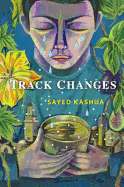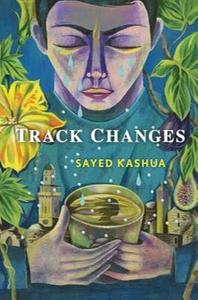
 In the "track changes" function of a word processing program, the "all markup" option preserves all deletions, additions, rewrites for the life of the document--although the last editor ultimately chooses what to accept and reject in the final version. Palestinian Israeli Sayed Kashua, who lives in St. Louis, Mo., ingeniously, affectingly employs this function in his intriguing fourth novel of the same name, Track Changes, in which he uses an Arab Palestinian family-in-crisis to question and challenge the veracity of telling one's own stories. Matching Kashua's trilingual dexterity (he writes predominantly in Hebrew, additionally narrates in Arabic and English), Mitch Ginsburg returns for a second adept translation partnership, following Kashua's Second Person Singular, winner of the 2011 Bernstein Prize.
In the "track changes" function of a word processing program, the "all markup" option preserves all deletions, additions, rewrites for the life of the document--although the last editor ultimately chooses what to accept and reject in the final version. Palestinian Israeli Sayed Kashua, who lives in St. Louis, Mo., ingeniously, affectingly employs this function in his intriguing fourth novel of the same name, Track Changes, in which he uses an Arab Palestinian family-in-crisis to question and challenge the veracity of telling one's own stories. Matching Kashua's trilingual dexterity (he writes predominantly in Hebrew, additionally narrates in Arabic and English), Mitch Ginsburg returns for a second adept translation partnership, following Kashua's Second Person Singular, winner of the 2011 Bernstein Prize.
Kashua's unnamed narrator's life is complicated. He used to be a Jerusalem newspaper editor, but now he's living solo in an Illinois grad school dorm room, separated from his wife and their three children, although he seems to be the kids' primary caregiver. He's written 30 books, but none of them bear his name. He's authored other people's memoirs--with varying degrees of accuracy, embellishment, even all-out fiction--but he hasn't worked since his family escaped the growing violence in Israel two years ago, to follow an academic position offered to his wife.
Fourteen years have passed since he's seen his parents and siblings, but his estranged father finally sent him a Skype message two days ago from his hospital bed, calling him home to Tira in Palestine. The narrator left the village in disgrace on his wedding day, when his father whispered to him that "he would never know love and asked not to see him until the day he dies." Death is now imminent, and father and son have secrets to reveal, memories to bare, bonds hopefully to reconnect. At the crux of their cleaving is the narrator's less-than-a-page long, written-in-an-hour, published-in-a-student-journal, 15-year-old short story that demands final reckoning.
That Kashua's protagonist is a nameless "I" who shares considerable biographical overlaps--a Tira hometown, immigration timing and circumstances, career history, University of Illinois at Urbana-Champaign landing, psychotherapist wife, their teenage daughter and two younger sons--suggests, perhaps even implies, the so-called truth of Kashua's first-person fiction. Yet his character, whose job is to transcribe others' memories onto the page, repeatedly reveals his elisions from and additions to strangers' memoirs-for-hire, often inserting his own memories as their own, thereby erasing his life in scattered pieces. The narrator's confessions are hardly reliable, making every level of his storytelling suspect, which Kashua further visually underscores by "track changes"-style crossed-out text. For savvy, curious readers, that interplay of parsing fact and fiction proves to be a lively, interactive experience. --Terry Hong, Smithsonian BookDragon
Shelf Talker: Sayed Kashua's fourth novel, Track Changes, weaves together an Arab Palestinian family-in-crisis narrative with an ingenious exploration challenging the expectations of reliable storytelling.

